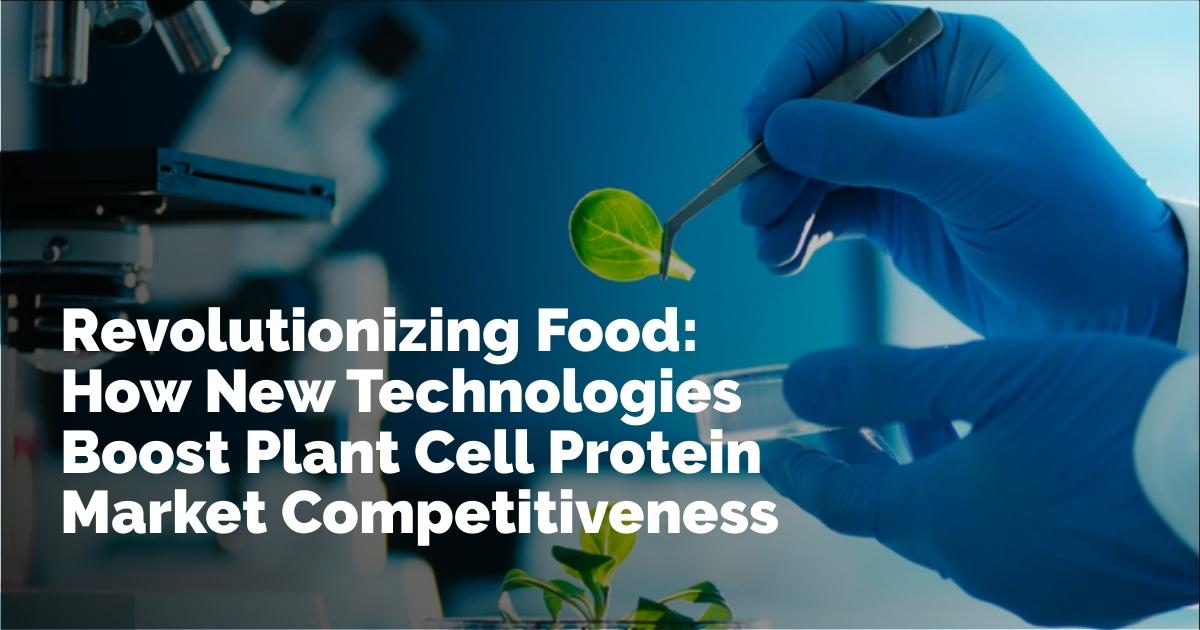New Technologies Propel Plant Cell-Based Protein Platforms Toward Competitiveness
Plant cell-based bioproduction systems have garnered attention for their ability to produce proteins with accurate folding and post-translational modifications, which are essential for creating effective therapeutics. Despite their potential, widespread use has been hampered by challenges in optimizing and scaling the production process. However, recent advances in cellular and genetic engineering offer the possibility of transforming plant cell-based systems into formidable contenders in the arena of high-value recombinant protein production.
Utilizing the insights offered by Jianfeng “Jay” Xu and his team from the Arkansas Biosciences Institute, this article delves into how emerging technologies can bridge the gap between plant cell-based platforms and traditional systems, highlighting innovative strategies and unexplored areas poised to enhance the efficiency and viability of these bioproduction methods.
Innovations in Plant Cell Engineering
Enhancing Productivity
Recent advancements propose various strategies to enhance the efficiency of plant cell-based protein production. According to Xu, innovations such as cell wall engineering can significantly improve protein secretion and simplify the downstream processing of plant-based systems. This approach, along with precise gene integration and the application of advanced genome editing tools like CRISPR-Cas9, can establish stable and high-yielding cell lines. These advancements could make the production process more streamlined and competitive compared to traditional platforms.
Exploring Uncharted Territory
While plant cell-based bioproduction has made significant strides, certain aspects remain underexplored. Xu highlights the potential benefits of strategic protein design and engineering, effective screening processes, and improving the long-term maintenance of elite cell lines. In particular, optimizing foreign gene integration sites within the plant genome is a promising avenue to resolve current challenges related to low protein productivity.
Moreover, Xu's team speculates that under certain optimized conditions, plant cell cultures might not require a fully intact cell wall for sustained viability and stability. If plant cells could be engineered to prevent issues such as cell clumping, transgene silencing, and excess protease levels, the productivity and efficiency of these systems might increase significantly.
Potential Advantages Over Traditional Systems
Quality vs. Speed
Xu points out that while traditional systems like E. coli-based platforms may offer faster and more cost-effective production in the short term, plant cells have the innate potential to produce higher-quality proteins suitable for both therapeutic and industrial applications. Although setting up plant cell cultures can initially be more resource-intensive, recent advancements in cell line engineering are rapidly closing the gap concerning ease and efficiency.
Scaling for Commercial Viability
The critical next step in ensuring the success of plant cell-based systems lies in demonstrating their commercial viability. Xu stresses the importance of scaling up production while maintaining consistency, reproducibility, and adherence to regulatory requirements. Successfully accomplishing this will require continued refinement of plant cell culture conditions, media formulations, and bioreactor designs. Collaborative efforts among industry players, academic institutions, and regulatory bodies will be essential to bridge current gaps and promote widespread adoption.
Future Prospects and Challenges
Collaborations and Innovations
The future of plant cell-based bioproduction hinges on the ability to integrate these advanced technologies effectively and to foster collaborations that push the boundaries of existing methods. Industry and academia must work together to refine bioproduction processes, navigating the complex regulatory environment while leveraging cutting-edge biotechnological innovations.
Long-Term Viability
Ensuring the long-term viability of plant cell-based systems involves addressing the unexplored elements of cell line maintenance and strategic protein engineering. Continuous research and development in these areas could alleviate current constraints and elevate plant-based platforms to become a mainstream choice for producing high-quality recombinant proteins.
In conclusion, with strategic application of new technologies and a commitment to innovation and collaboration, plant cell-based protein platforms have the potential to revolutionize the field of bioproduction, offering a high-quality, competitive alternative to traditional methods. As these systems continue to evolve, they hold promise for transforming the landscape of protein therapeutics and industrial applications alike.
출처 : Original Source

